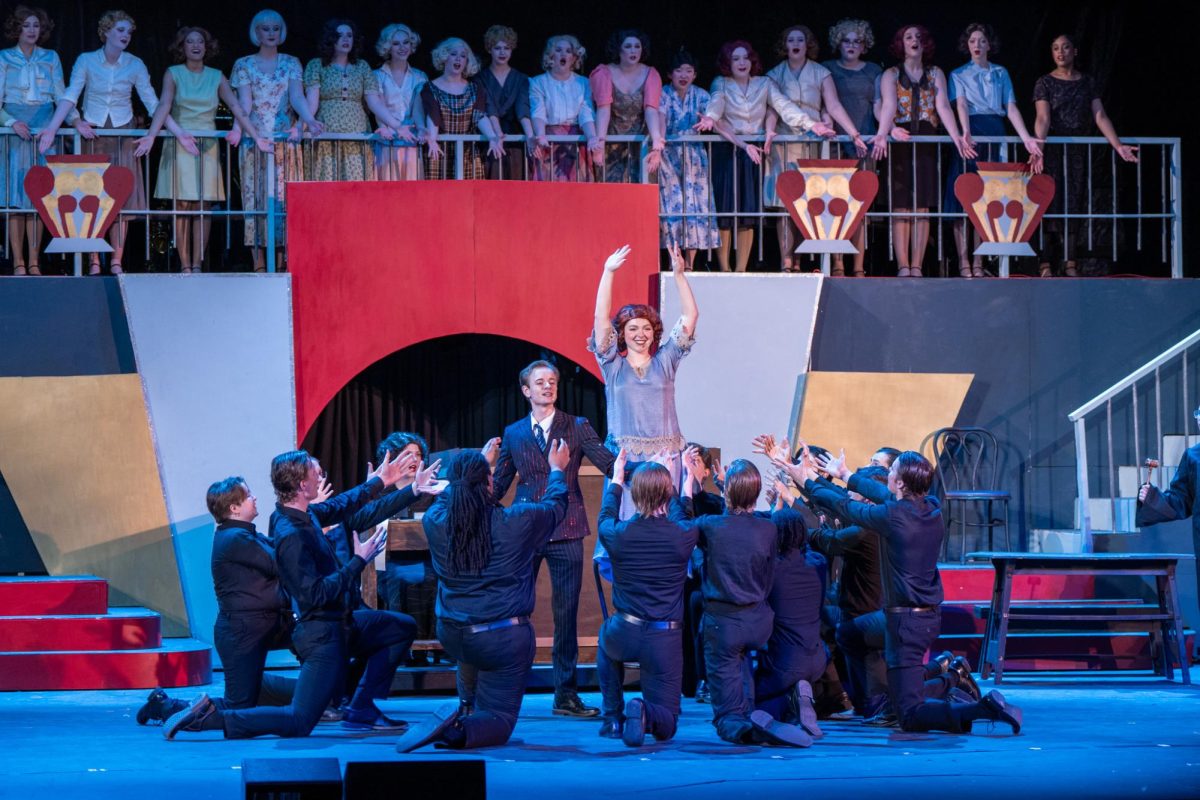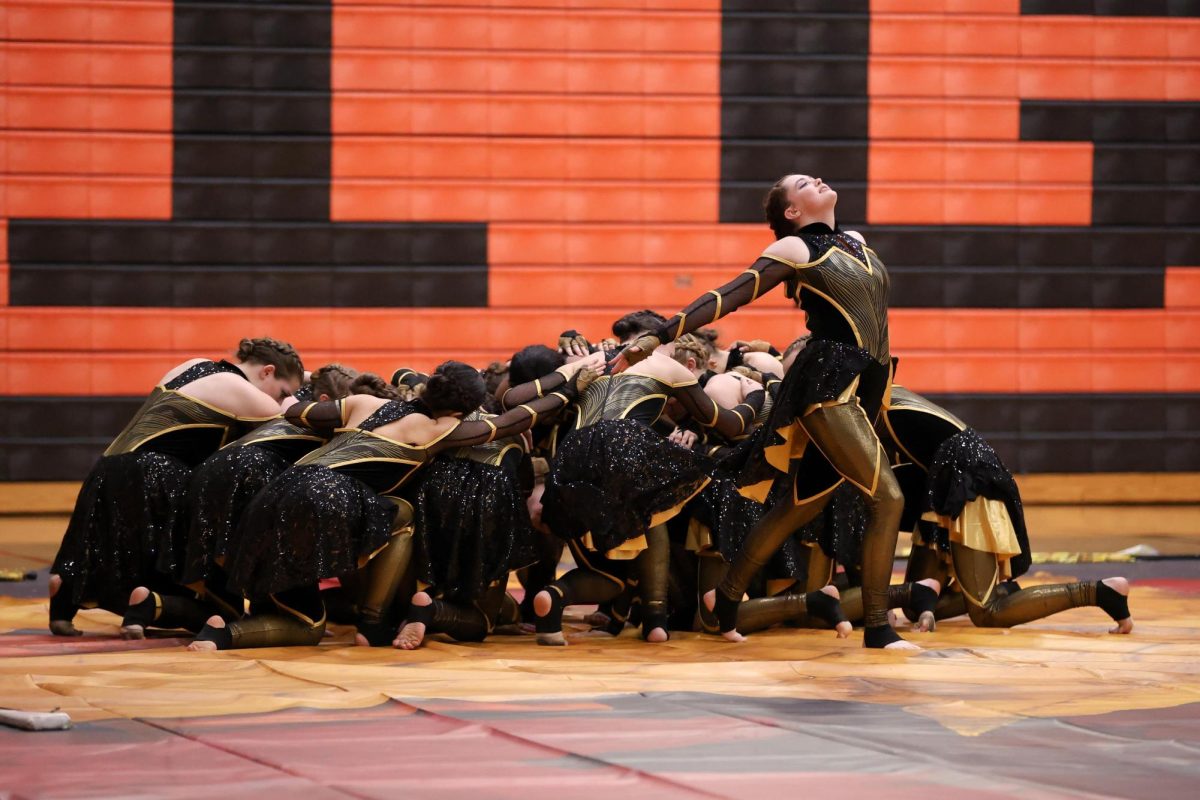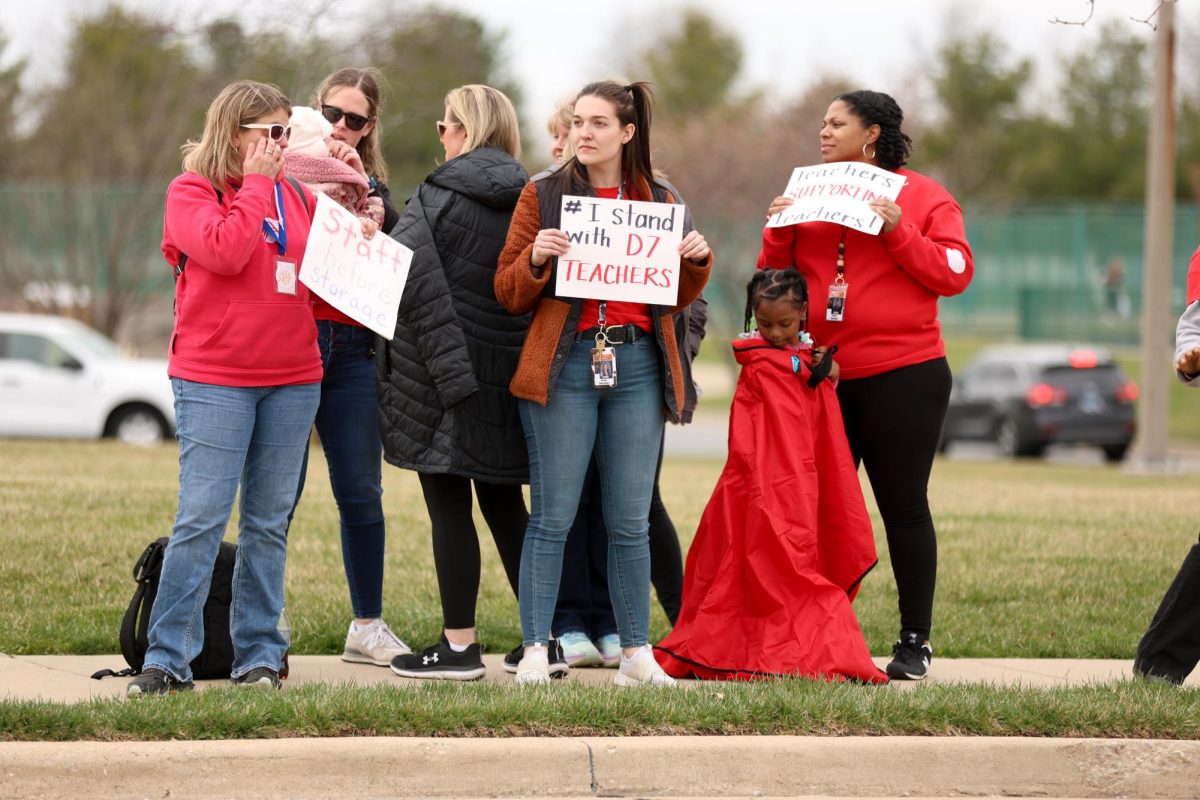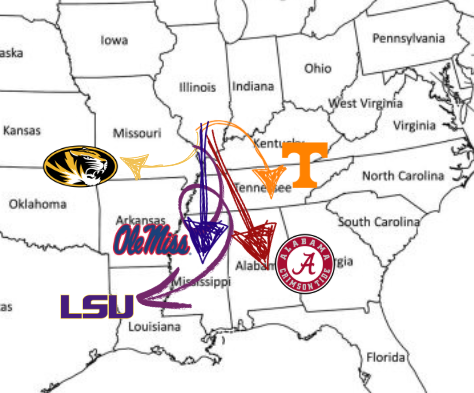Tech Crew Steals the Show
October 27, 2016
The velvet theater curtains close, and the blinding spotlight shines on the cast members of a play that has just completed. The cast waves at the cheering audience members and walks off stage as the lights dim. Chatter of how spectacular the lead actress’ performance was echoes throughout the auditorium. Little, however, is whispered about the backbone of all theater productions: the technical crew.
EHS’s tech crew spends the majority of their time building and painting the sets for each fall and spring production. They are also responsible for setting up the sound and lighting equipment a few weeks before each show. While these aspects of theater, especially lighting and sound, are often overlooked by the audience, they can make or break a production.
“You can really tell the difference in the quality of the show based off of how the lighting and sound are set up,” senior Luke Dawson said. “The lighting has the ability to completely change the mood of the show and still be subtle enough that the audience doesn’t notice.”
Dawson has been involved in tech for seven years. At EHS, he worked his way up from being a stagehand for “The Phantom of the Opera” to the student technical director of “Almost, Maine.” This position has allowed him to design parts of the set and teach the younger students how to operate the equipment for the upcoming show.
Because technical director Brad Lewis hasn’t been able to be present for much of “Almost, Maine,” experienced tech members like Dawson, senior Sam Leapley, and junior Zac Francis have stepped up as leaders for the rest of the crew. These students have worked together to design portions of the set with their own ideas “despite not having a clear vision of what it was going to be,” Francis said.
And this show’s set is not an easy one for students to build on their own.
“It has a lot of pieces,” Leapley said. “It has a lot of things that move, move around each other and have to fit in next to each other.”
While it has been stressful, Dawson enjoys the added responsibility he has for the fall play.
“It’s nice to be able to be more involved with the decisions made in the show, especially after working for the organization for three years,” he said. “I can actually use the knowledge I’ve been learning.”
The tech crew is rarely seen during theatrical productions, but they put a great deal of time and effort into each show. Leapley admitted that she spends around 25 hours a week in the auditorium year-round working on sets, lighting and sound.
Tech members like Dawson and Francis also use their skills outside the auditorium working for the school. They set up lights and sound for assemblies, orchestra and band concerts, homecoming and the graduation ceremony.
In addition to their technical skills, tech crew members learn many valuable lessons during their time behind the curtain
“Tech crew has taught me how to work as a team more than anything else,” Francis said. “I don’t see myself building sets or using a soundboard much in my future, but you learn so much more in tech crew than technical theater skills. You get a lesson in common sense, problem solving, making friends and so much more that I will use for the rest of my life.”
While the crew typically doesn’t receive as much praise from the audience as the cast, the other members of drama club are very supportive and appreciative of their work, and the crew members realize their job comes with a certain level of anonymity.
“I think the people in tech crew are somewhat unsung heroes,” Francis said. “But if no one notices us doing our job then we did our job right.”











